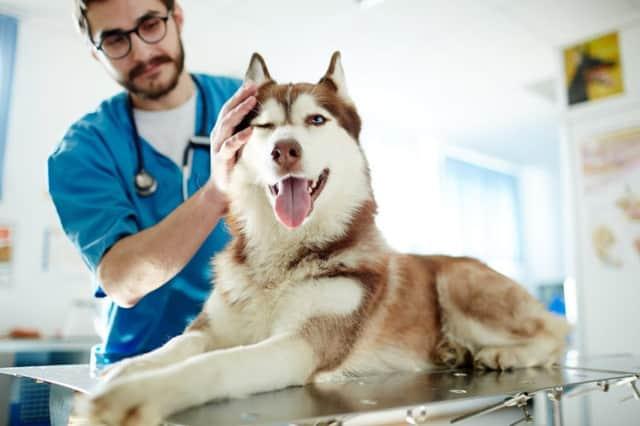Vets warn of disease risk from rescue pets


More vets in Scotland than elsewhere in the UK noted an increase in the number of people adopting unwanted animals from other countries such as Romania, where stray dogs are often killed by authorities in a bid to keep them off the streets, according to a survey by the British Veterinary Association.
Almost all “companion animal” vets in Scotland said they are concerned about the import of rescue dogs from abroad, warning that they may have unknown health histories or carry illnesses such as leishmaniasis, rabies, canine babesiosis and heartworm, without showing any outward clinical symptoms, which could be passed on to other animals or humans. Meanwhile, 77 per cent noted an increase in treating pets which had been rescued from another country.
Advertisement
Hide AdAdvertisement
Hide AdThe BVA’s survey revealed that 43 per cent of companion animal vets in Scotland have seen new or rare conditions in their practice over the last year that are associated with dog imports, with the potentially fatal zoonotic disease leishmaniasis emerging as the most common. Vets also reported seeing cases of other exotic conditions such as ehrlichiosis and heartworm.
BVA president John Fishwick said: “We are nation of animal lovers, and so the desire to rescue stray, neglected or abused animals from other countries and give them loving homes in the UK is completely understandable. Unfortunately, the hidden consequence of this can be disastrous for the health and welfare of other pets as well as humans here.
“As vets, we are extremely concerned about the risks posed by rescuing dogs with unknown health histories from abroad and, while it may sound harsh, we believe the wider consequences for the UK dog population must outweigh the benefit to an individual animal being imported.”
He added: “With thousands of dogs needing homes within the UK, I would urge anyone looking to get a pet to adopt from a UK rehoming charity or welfare organisation instead. If you already own a rescue dog from abroad, approach your vet for advice on testing and treatment for any underlying conditions.”
Under the current EU Pet Travel Scheme, stray dogs can be moved within the EU as long as they comply with certain regulations, including treatment for tapeworm and receiving the rabies vaccination,. However, although dogs that are non-compliant with these regulations are quarantined and vaccinated before being allowed to enter, vets said it is possible that they may still be incubating a disease upon which a vaccination would have little to no effect.
The body has called for the UK government to impose strict restrictions on the movement of stray dogs from countries that are endemic for diseases not currently prevalent in the UK and introduce testing in stray dogs for any such diseases as a mandatory requirement.